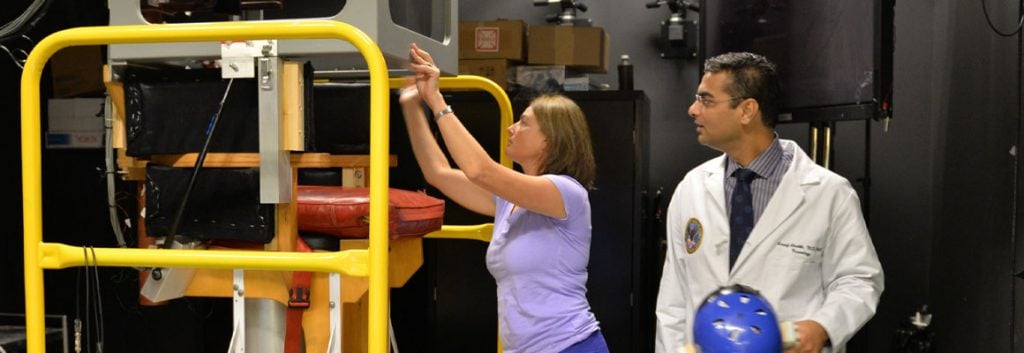
Research on Preventing Falls: Spotlight on Dr. Aasef G. Shaikh
What if the next generation of Deep Brain Stimulus (DBS) technology could keep people with PD from falling?
Dr. Aasef G. Shaikh, MD, PhD, the recipient of APDA’s prestigious three-year George C. Cotzias Fellowship for 2018-2021, is trying to accomplish just that. DBS can help with many symptoms, but doesn’t yet address the issues that cause people to fall.
Thanks to your support, Dr. Shaikh and his team are studying how vision, eye movements, the inner ear/vestibular system, and proprioception (perception or awareness of the position and movement of the body) interact.
The Process
They start by studying patients with PD who have undergone DBS to understand how they navigate the world. Next they modify one source of information about the patient’s environment, for example, vision. Then they manipulate the patient’s DBS parameters to study how the DBS stimulation affects their function.
They study connections in the patients’ brains using magnetic resonance imaging and bioelectric simulation of their DBS therapy. Finally, they replicate the findings in animal models to learn more about how DBS changes the way the brain cells talk to one another and influences movement.
Space Age Technology
Dr. Shaikh’s team uses different experimental setups in their research including a system normally used by NASA to train astronauts! The researchers have modified it to study postural control and balance function in PD, which are critical to preventing falls. They are the only group utilizing such a state of the art system in combination with DBS to understand how DBS can be used to improve balance function in PD.
Promising Results
The research is uncovering key pieces of information critical to understanding fall prevention. In a specific program related to gait and postural instability in PD, they found that DBS can affect important connections between the cerebellum and thalamus to influence balance and gait function. This could provide a new way to think about these deficits, and possibly treat them.
Dr. Shaikh says that the support of his patients keeps him passionate about research. He also gets excited when the research leads his team to ask new questions they hadn’t thought of before. “Sometimes that question and its answer lead us in a completely new direction. The process continues, with one set of questions leading to the next, fueling the growth of our research program.”
APDA is proud to support Dr. Shaikh and other innovative scientists working in the field of PD research.
To read more about Dr. Shaikh’s APDA-funded research, please visit https://www.apdaparkinson.org/research/investigators/aasef-shaikh/
